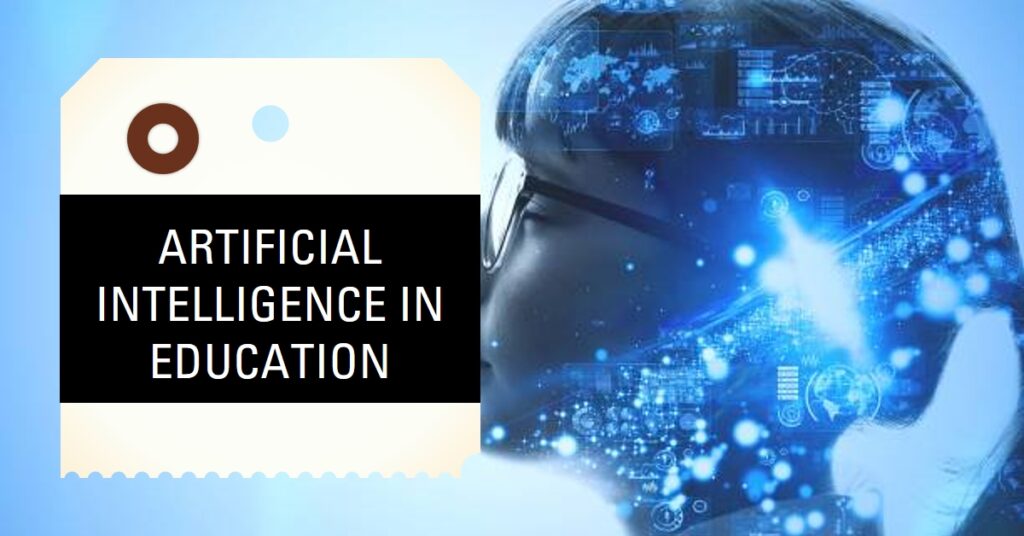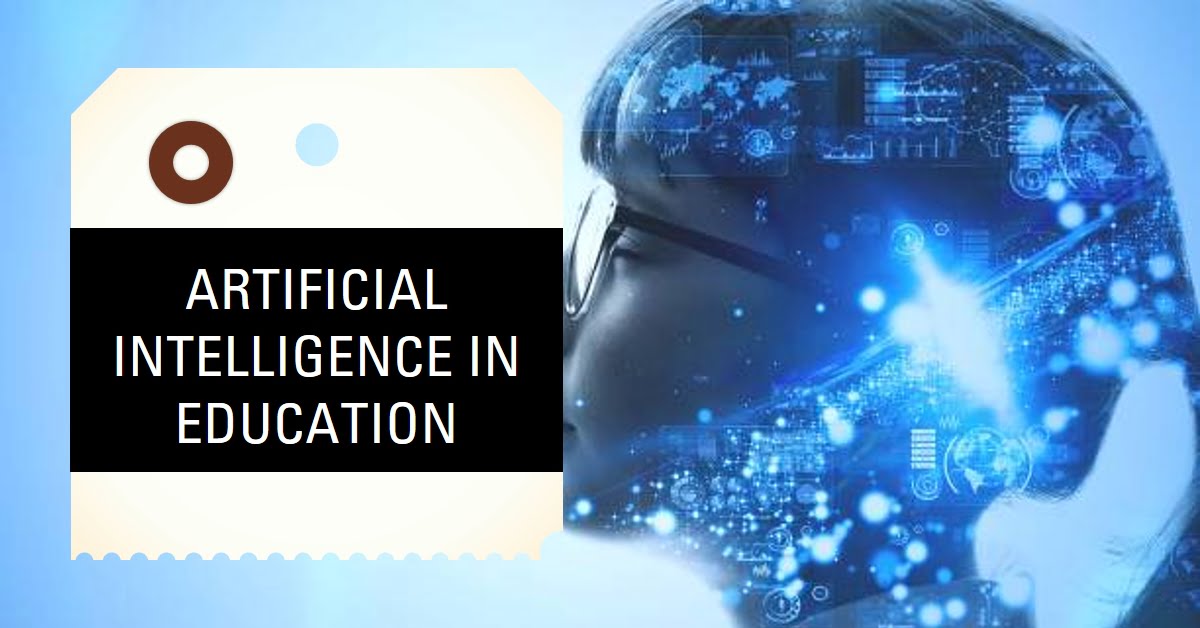Artificial Intelligence in Education
Imagine a lecture room wherein the teacher is not human but an AI. It tailors training to every scholar’s dreams, gives immediate remarks, or even grades assignments accurately. This is not generation fiction; it’s miles the future of education powered by synthetic intelligence (AI).
AI is remodeling every aspect of our lives, and training is not an exception. From personalized getting-to-know structures to digital truth simulations, AI gadgets offer progressive strategies to interact with college students, beautify studying effects, and make training more memorable than ever before.
The Power of Personalized Learning
One of the most extensive guarantees of AI in training is customized mastering. Traditional school rooms frequently struggle to cater to the numerous dreams and analyzing styles of character university students. However, AI can look at pupil data, including performance on quizzes, homework, final touches, and engagement levels, to create custom-designed reading paths.
These paths can adjust the tempo and problem of commands, advocate more property, and provide focused interventions for students suffering or excelling. Imagine a pupil who grasps calculus ideas short but receives slowed down in algebra. An AI-powered platform can understand this and provide advanced calculus modules while imparting more assistance in algebra, ensuring the pupil progresses at their non-public top-outstanding tempo.

Beyond the Textbook: Immersive Learning Experiences
AI is likewise setting up doors to immersive and interactive studying reports. Virtual reality (VR) simulations can ship college students to the coronary heart of the Amazon rainforest, discover the ocean’s depths, or stroll most of the dinosaurs. Imagine studying the historic Egyptian pyramids by clearly exploring their interiors or dissecting a digital frog to apprehend its anatomy.
This immersive research not only makes reading extra engaging but additionally assists college college students in preserving records better. Studies have proven that VR can significantly improve learning outcomes, particularly in STEM topics.
AI is a Teacher’s Ally, Not a Replacement
Remembering that AI is only sometimes intended to replace instructors is essential. Instead, it needs to be seen as a powerful tool that could augment and decorate the teaching manner. AI can deal with administrative duties like grading essays or scheduling appointments, releasing instructors’ time to focus on what they do great:
- Providing personalized resources.
- Building relationships with university college students.
- Fostering a love of getting to know.
Furthermore, AI can give instructors valuable records and insights about their college students. By reading pupils’ standard typical performance information, teachers can discover areas where university college students struggle and adjust their education. This statistics-driven method can motivate extra powerful coaching and advanced studying results for all.
Challenges and Considerations
Of course, integrating artificial intelligence in education offers traumatic situations. One of the most critical troubles is the capability for bias in AI algorithms. If records used to educate the one’s algorithms are biased, the ensuing AI system may want to perpetuate and amplify cutting-edge-day inequalities in training. It’s essential to ensure that AI structures are advanced and deployed with fairness and fairness in mind.
Another undertaking is the price of implementing the AI era in schools. While the long-term blessings of AI in schooling are promising, the upfront expenses can be huge. However, as AI generation becomes extra low-priced and reachable, those challenges will become less daunting.

The Future of AI in Education
The future of training is shiny with AI’s capability. As the AI generation keeps reinforcing, we can assume even more modern and powerful tactics to look at. From customized getting-to-know systems to immersive VR reminiscences, AI has the power to revolutionize how we train our children, making them equipped for a destiny. This is an increasing number driven by generation and innovation.
Here are a few more extraordinary minds on the future of AI in training:
- AI-powered tutors must provide real-time aid to college students struggling with complicated minds.
- AI can be used to evaluate pupil improvement in real-time, imparting instructors with feedback right away and letting them alter their education.
- AI may be used to create customized mastering materials that cater to the correct desires of each student.
- AI may be used to gamify analyzing, making it more engaging and amusing for university college students.
The opportunities are infinite, and the destiny of training with AI is complete with promise. With cautious planning and implementation, AI can create an extra equitable and consequential mastering experience for all students.
Let’s encompass the ability of artificial intelligence in education and artwork together to assemble a brighter destiny for learning!
I want this weblog to provide an entire evaluation of AI in training and its ability to revolutionize analyzing. It’s an exciting time to be concerned about schooling, and I take into account that AI has the strength to make a real difference in the lives of university students around the sector.

FAQs
How can AI personalize mastering for college children?
AI-powered structures can look at pupil information, including famous overall performance on quizzes, homework crowning glory, and engagement levels, to create personalized getting-to-know paths. These paths can alter the pace and issue of commands, propose more significant belongings, and offer centered interventions for college youngsters who are struggling or excelling. Imagine a student who grasps calculus thoughts quickly but gets accelerated in algebra. An AI-powered platform can understand this and provide advanced calculus modules while providing additional assistance in algebra, ensuring the pupil progresses at their very own finest tempo.
What are a few examples of immersive getting-to-know critiques with AI?
Virtual reality (VR) simulations can transport college students to the Amazon rainforest’s coronary heart, discover the ocean’s depths, or walk many of the dinosaurs. Imagine gaining knowledge of the historical Egyptian pyramids by exploring their interiors or dissecting a digital frog to understand its anatomy. This immersive research makes learning extra enticing and helps students keep facts higher. Studies have shown that VR can motivate giant improvements in studying effects, mainly in STEM topics.
Does AI update teachers inside the checkroom?
No, AI is not supposed to replace teachers. Instead, it must be visible as a powerful device that could increase and decorate the way of education. AI can deal with administrative duties like grading essays or scheduling appointments, freeing up teachers’ time to recognize what they do wonderfully:
- Supplying personalized beneficial resources
- Building relationships with college students
- Fostering a love of learning
What are some demanding situations of the use of AI in training?
One foremost undertaking is the capacity for bias in AI algorithms. If statistics used to educate one’s algorithms are biased, the ensuing AI gadget can also want to perpetuate and amplify modern inequalities in training. Ensuring that AI structures are advanced and deployed with equity and equity in mind is vital. Another assignment is the rate of imposing AI technology in colleges. While the long-term advantages of AI in training are promising, the earlier expenses may be huge. However, as the AI generation becomes greater, low-priced, and available, these demanding situations will become much less daunting.
What does the future of AI in training appear like?
The future of training is colorful with the functionality of AI. As the AI generation continues to enhance, we will look for more modern and practical research techniques. From customized analyzing structures to immersive VR reminiscences, AI has the electricity to revolutionize how we train our children, preparing them for a destiny increasingly driven by technology and innovation.












9 thoughts on “Artificial Intelligence in Education: Revolutionizing Learning, One Algorithm at a Time”